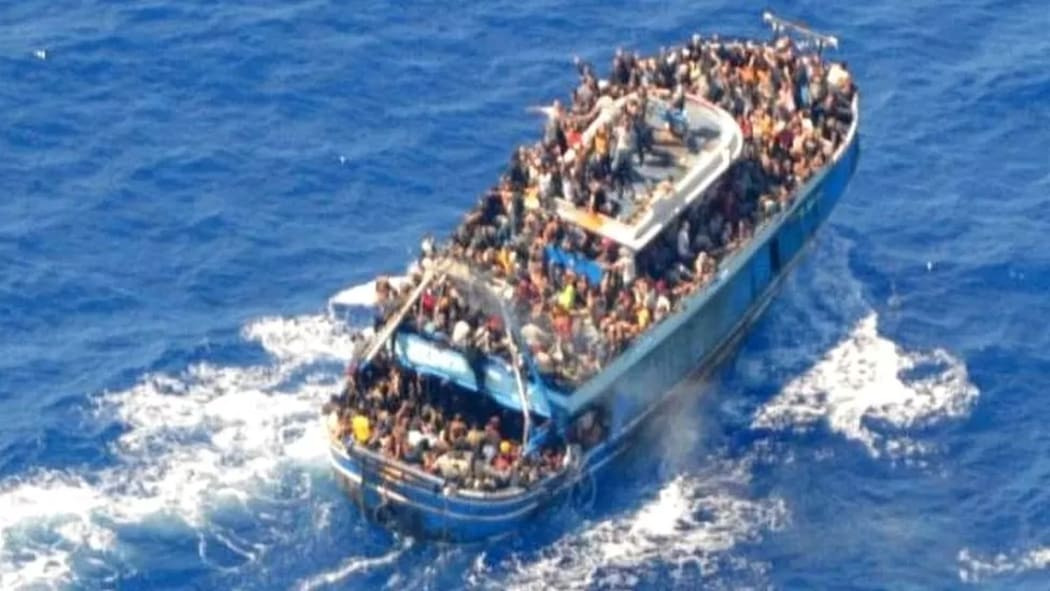Up to 500 people are still missing from a migrant boat that sank off Greece, the UN human rights office says.
Large numbers of women and children were among those missing in the “horrific tragedy” that left 78 people dead, said spokesman Jeremy Laurence.
The appalling loss of life underscored the need to bring people smugglers to justice, he added.
But it also made clear that search and rescue at sea was a “legal and humanitarian imperative”.
In a joint statement with the International Organization for Migration, the refugee agency said any search and rescue action had to be conducted to prevent loss of life..
Since the fishing boat carrying up to 750 people went down 50 nautical miles off Pylos in southern Greece, the role of the coastguard has come under increasing scrutiny.
Greece’s caretaker prime minister, Ioannis Sarmas, said a “thorough investigation of the real facts and technical judgements” would take place to determine what had caused the boat to sink.
Greek officials have denied a series of reports that suggest it went down after 02:00 on Wednesday because a rope was attached by coastguards. Two of the 104 survivors of the wreck have described how the highly crowded boat had veered from side to side.
Initially the coastguard said it had kept a “discreet distance” from the boat. But then Greek newspaper Kathimerini quoted a source saying members of the coastguard had tied a rope to the boat so its crew could check on conditions, and those on board had then untied it to continue heading for Italy.
That incident is understood to have taken place at around 23:00, three hours before the boat went down.
Government spokesman Ilias Siakantaris confirmed on Friday that the coastguard had “used a rope to steady themselves, to approach, to see if they wanted any help”.
But he stressed: “There was no mooring rope,” suggesting that there was no attempt to tow the boat or tether it for any length of time.
“They refused it, they said ‘no help, we go to Italy’ and continued on their way.”
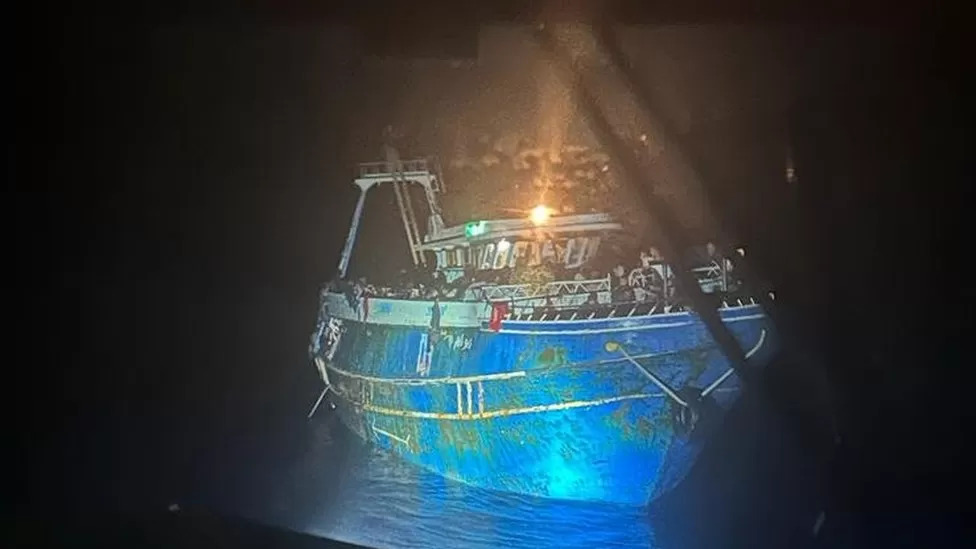
The question of whether a rope had been tied to the migrant boat was first raised by a refugee activist who said people on board had told her they feared it could prompt their highly crowded boat to turn over.
The coastguard emphasised that its patrol boat had for a few minutes “dropped a small rope on to the fishing vessel to find out the current condition of the boat and passengers”.
Some of those on board then untied it in order to continue their route northwards to Italy and the patrol “moved away to watch from a close distance”.
But since the tragedy unfolded, its timeline and account have been challenged. The coastguard has stressed that from the first moment it was in contact with the crew no request for assistance was made and further repeated offers of help were turned down.
One organisation which provides support for migrants at sea, Alarm Phone, sent an email on Tuesday afternoon warning the coastguard and others that as many as 750 people were on board and that they were urgently asking for help.
Two accounts from survivors have suggested that tying a rope to the fishing boat may have led to it going down.
One has come from a local councillor in the port city of Kalamata who had earlier spoken to a 24-year-old Syrian.
“The coastguard boat tied them with some rope and tried to tow them to the left. For an unknown reason the boat veered to the right and suddenly sank,” said Tasos Polychronopoulos.
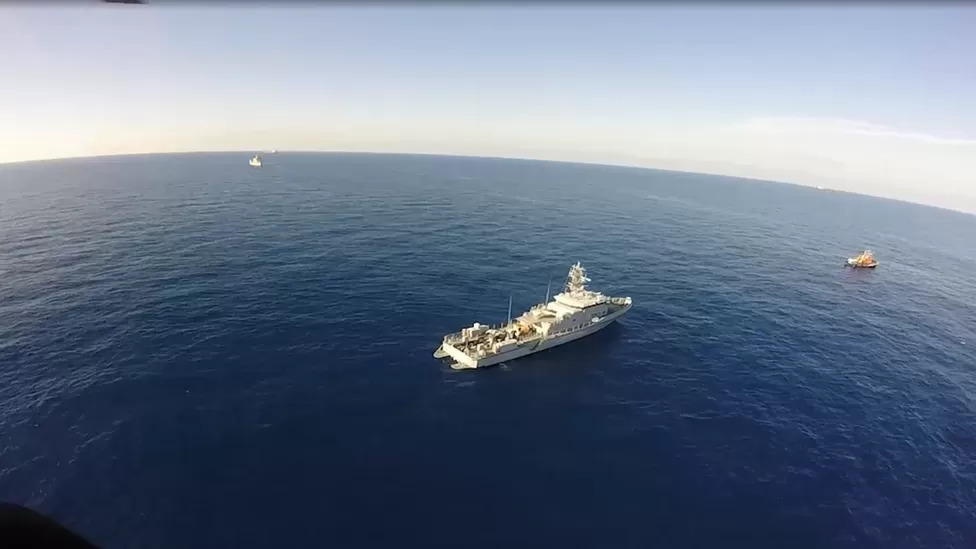
Another survivor gave a similar version to former Prime Minister Alexis Tsipras during a visit to Kalamata on Thursday.
“The Greek coastguard asked the vessel to follow them, but they couldn’t,” a translator told Mr Tsipras. “The coastguard then threw a rope but because they didn’t know how to pull the rope, the vessel started dangling right and left.”
“The coastguard boat was going too fast but the vessel was already dangling to the left, and that’s how it sank.”
Nine people, including several Egyptians, have been arrested on suspicion of people trafficking, Greek TV is reporting.
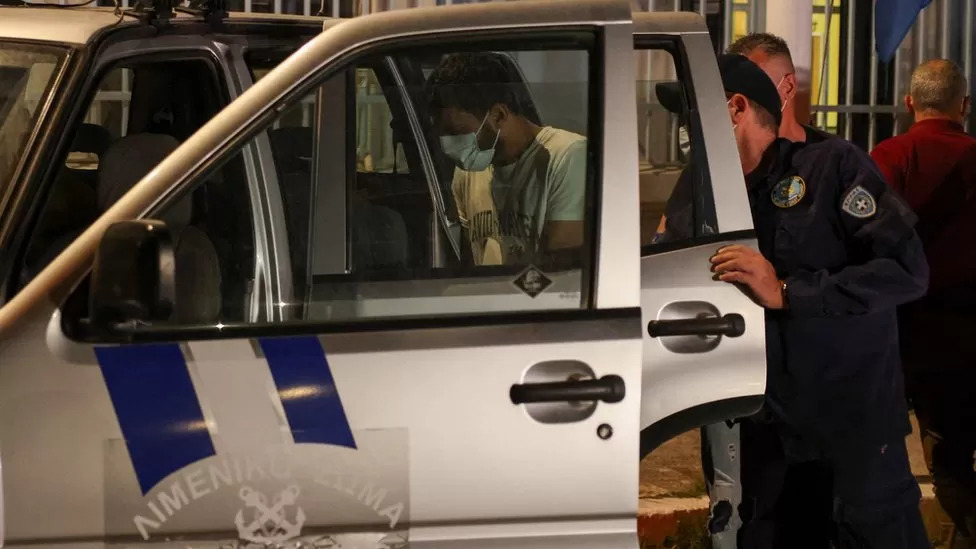
Georgios Vasilakos, a volunteer rescue doctor for the Hellenic Red Cross, told the BBC that no women and children were among the survivors.
He said survivors reported that “all women and children were isolated below deck”.
“This is why, because of the rapid unfolding of events and the rapid capsizing of the boat, they were unable to get out in time,” he said.
People on the boat had been drinking sea water for at least two days before it sank, he said.
Families of some of the missing have arrived in Kalamata in search of their loved ones.
“My relatives were on the boat,” said Aftab, who had travelled from the UK and said at least four of his relatives from Pakistan were unaccounted for.
A Syrian man from the Netherlands broke down as he revealed his wife and brother-in-law were missing.
“The authorities are looking for their bodies in the sea… They’re looking in hospitals, they’re looking among dead bodies, and among the survivors,” Kassam Abozeed said.
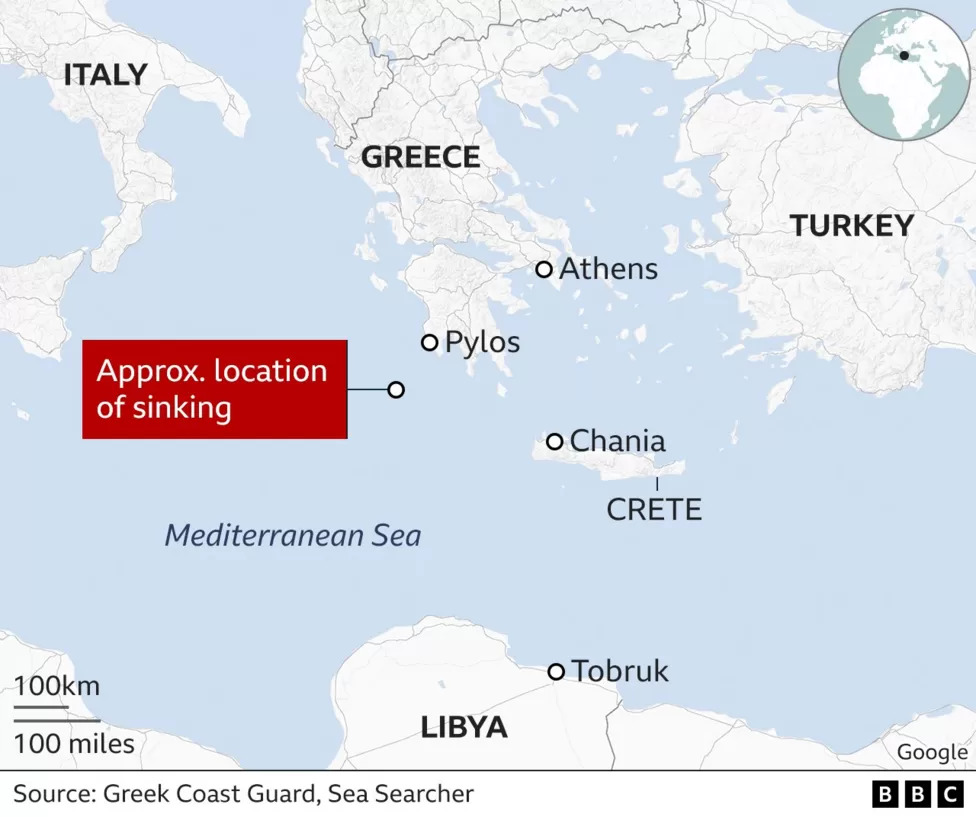
Greece is one of the main routes into the European Union for refugees and migrants from the Middle East, Asia and Africa.
Last month the Greek government came under international criticism over video reportedly showed the forceful expulsion of migrants who were set adrift at sea.
Source : BBC

